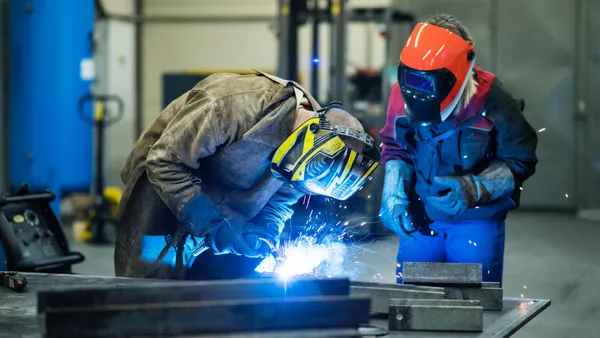Dive Brief:
- A House subcommittee has tasked the U.S. Dept. of Labor with proving that government funding for federal labor training programs like Job Corps are producing enough results, Bloomberg BNA reports. Amid President Donald Trump's proposed budget cuts to the DOL, Congressional leaders seek to evaluate the programs to determine whether they help eliminate skill gaps in the workplace.
- Under the Workforce Innovation and Opportunity Act (WIOA), the DOL is creating systems to improve data collection, which can improve performance and identify the most needed job skills in turn.
- On Apr. 4, Equal Pay Day, the DOL announced $5.7 million in available grants available through its Workforce Data Quality Initiative. The funds will promote industry education and workforce data collection for various states. That same day, Ivanka Trump spoke at a White House CEO town hall meeting about the administration's initiatives for equal pay and the creation of apprenticeship programs.
Dive Insight:
Skill shortages continue to plague nearly every industry in the U.S., and Congressional leaders aren't the first to call out the Trump administration in this regard — a previous summit between Trump and a group of manufacturing CEOs ended with the warning that may more jobs openings won't help if employers can't fill them.
That's why apprenticeships and other workforce development programs must continue. The Department of Labor's efforts to improve data gathering is a positive step in the right direction. But there's much more work to be done in both the public and private sectors.
The current administration seems supportive of job training programs and similar initiatives. Secretary of Labor nominee Alexander Acosta, during his hearing before the Senate, touted the success of federal programs and said he would work closely with the Dept. of Education in order to introduce students to relevant concepts even earlier.
Higher education entities are also steeping in to help. New York recently became the first state to offer tuition-free college degrees to working- and middle-class students, giving the next generation a head start on in working toward their careers.
Employers have started building talent pipelines at the high school level, and one experiment college is teaching students to learn programming and other technical skills on their own.













